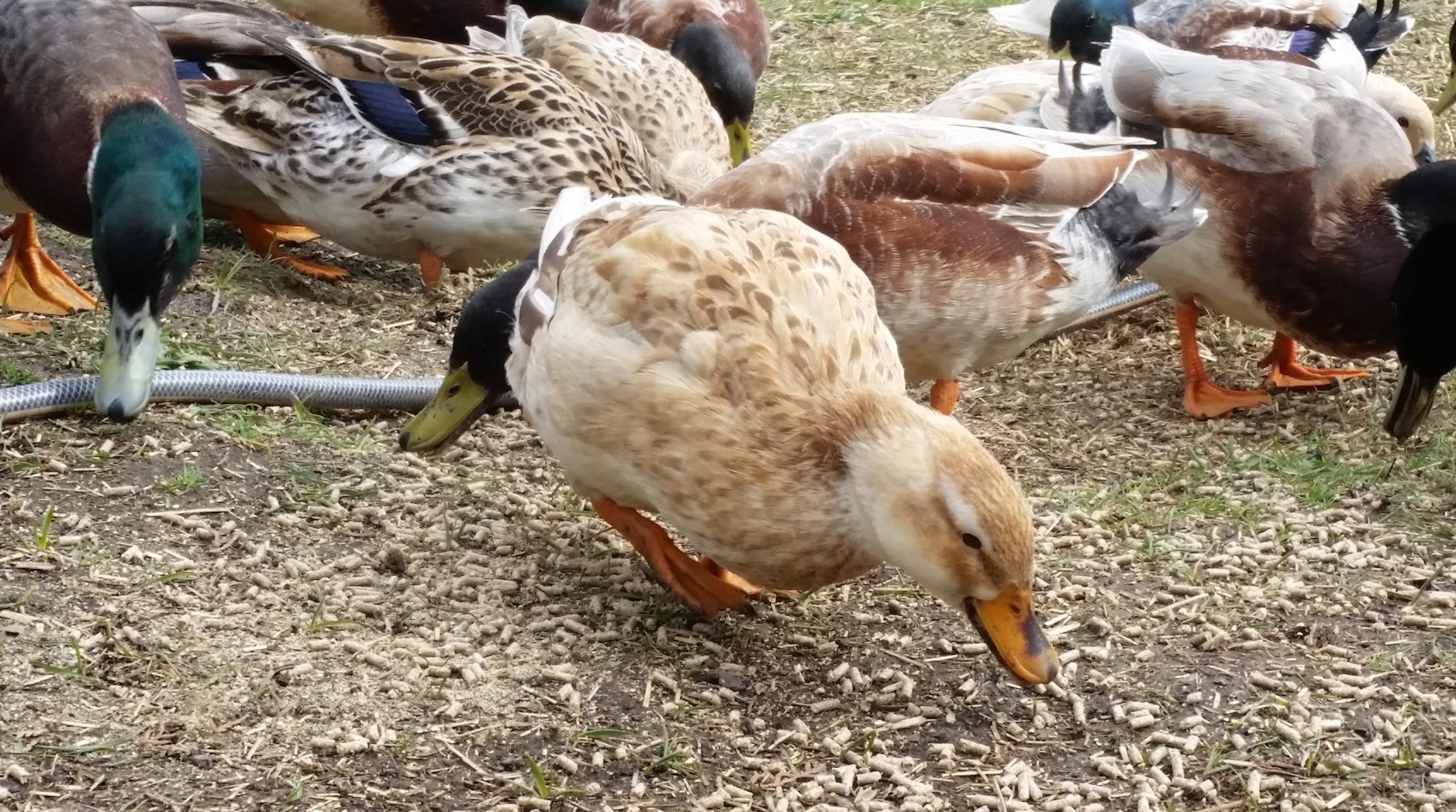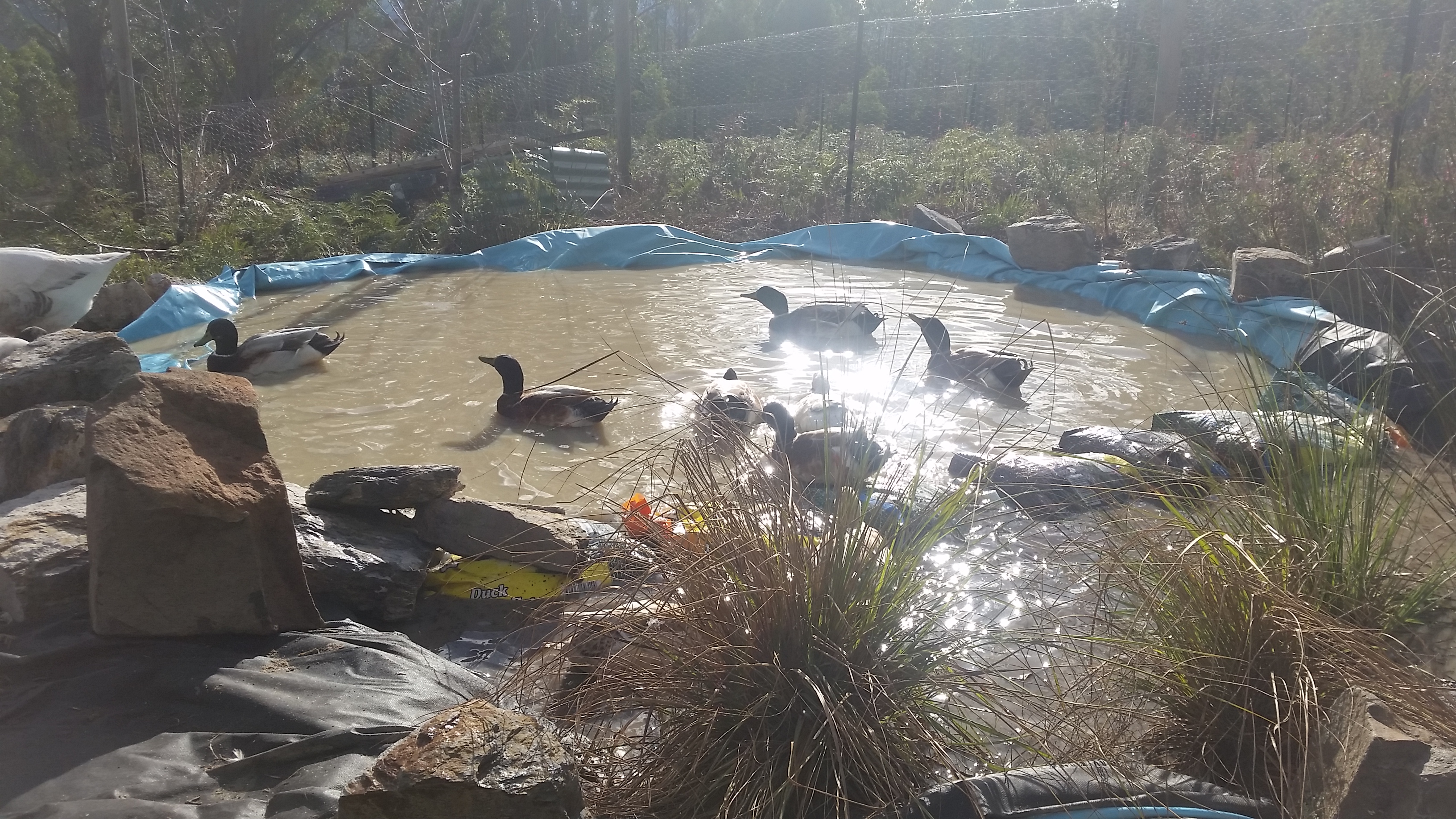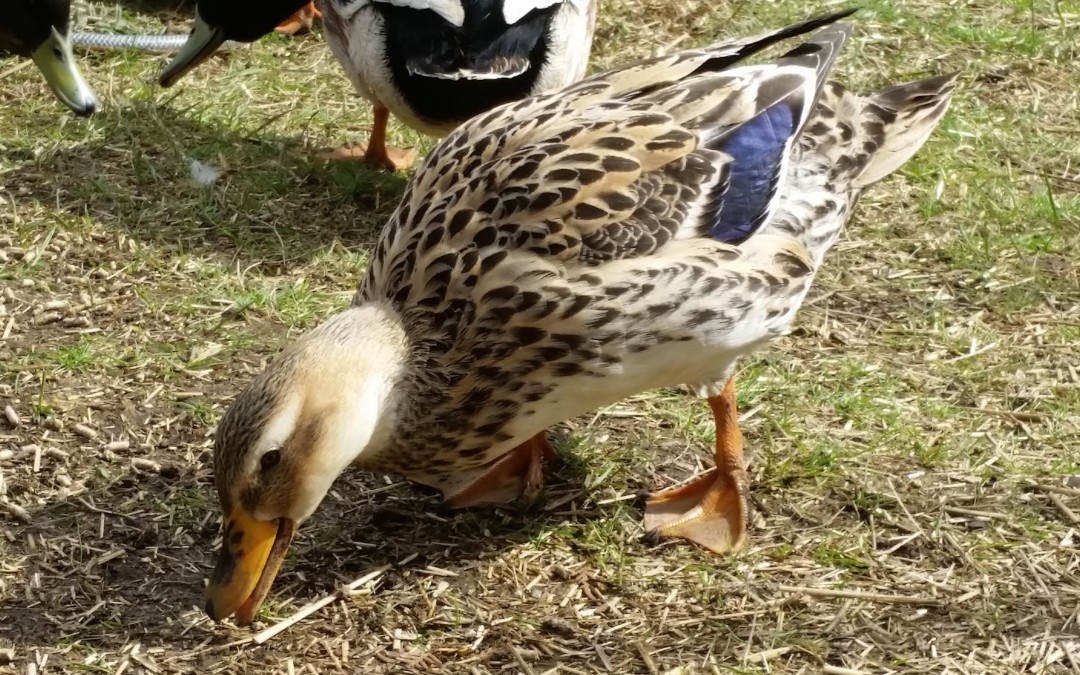Unless you grew up in the country, your idea of ducks is probably like mine was: gentle, playful animals that spend their time happily splashing around in ponds, waddling comically around on the grass, bath-time rubber-ducky creatures whose adorable fluffy yellow offspring bring to mind thoughts of buttercups, sunshine, and soft-on-the-behind toilet paper.
I now know the truth.
The ducks are my fault. I wanted them. I was enamoured with the idea of livestock helping us with our jobs in exchange for their food and housing. They will eat the slugs and help us in the garden, I told Peter. Their eggs are larger than chicken eggs but even more delicious, especially in cooking! We will breed them and eat them!! And sell them! Everyone will want our lovely ducks!
We bought 5 ducks. Which soon turned into about 20. And we very quickly learned the following:
Ducks- The Reality
- Ducks are NOISY. Extremely noisy. The males (drakes) are the quiet ones. (Insert your own funny joke about ducks mirroring humans). The volume of the females’ quacking can rival a rooster’s crow, but at least our roosters have usually limited their crowing to morning and evening. Our ducks harass us with their loud QUACKing anytime they see us.
- Ducks are GLUTTONS. Unlike our chickens, who sensibly and civilly eat from their feeders as they need, ducks hoe through any and all food given. This means we are unable to leave feeders out, which in turn means the ducks cannot be left for days at a time like chickens can. Ducks are bullies at mealtimes. Unlike roosters, who call out to their hens at mealtimes and wait chivalrously until the girls eat before starting themselves, drakes lunge and peck and bully; it’s an out-and-out free-for-all, with everyone competing to the very last food pellet.
- DUCKS POO IN THEIR WATER. Yes, POO. A lot. They swim in their water, splash in it, drink from it, mate in it…and POO in it. We bought a couple of sandpit clamshells to use as duckponds, thinking they would need re-filling every few days at most. Because of their pooing habits, the water in these clamshells needs to be changed daily.
- Their EGGS MAY BE DELICIOUS, BUT WE WOULDN’T KNOW. The ducks do such a good job of hiding their nests that we often don’t find eggs until they are halfway to being ducklings. Or so old that they are ready to explode. And an exploding duck egg is something to turn one off omelettes for many, many weeks.
- THEY MAY EAT SLUGS. We have not seen any slugs in the duck enclosure. That said, we haven’t seen any outside the duck enclosure, either.
- Yes, DUCKLINGS ARE GORGEOUS. AND PROBABLY SOFT ON THE BEHIND. And our ducks have had many of them. Our five ducks should have turned into over 100 by now. ACTUAL size of the flocks…16. We first thought we were miscounting the broods. We searched for the missing babies, and occasionally we would find one down a hole or with a little webbed foot caught in a knot of roots, but mostly…no sign. And when a brood of 13 dwindled to 6, we knew something was going on. We suspected particularly aggressive rats. And then, we saw it in action. A spectacular wedge-tailed eagle glided down and flew off again…with a little yellow ball of fuzz in one set of talons. Wedge tailed eagles are a protected species and sightings are rare enough that even old-time locals will raise their heads and comment if they see one. And we were now being bestowed with daily, up-close sightings in exchange for ducklings. We tried to protect the ducks and broods in enclosed wire domes; the mums often got quite cranky being separated from the rest of the flock. Ungrateful creatures. That said, it seems to be working, and the most recent brood has made it to adulthood.


The acquisition of ducks has not been a particularly positive one. Soon, we began to resent the ducks: freeloaders costing us in food, time, and precious water with their filthy pooing habits. Noisy animals badgering us for food whenever we set a foot outside the house (or even if we just opened a window). Stupid animals unable to protect their young or appreciate OUR efforts to protect their young.
But then, something happened. Something which made us change our views, made us feel ducks were not the stupidest, filthiest, most ungrateful animals to be brought to our property, something which even made us feel vaguely fond of the ducks.
We got geese.


ahahahahhahah I loved this! Great read and they do sound like a LOT of work :p Maybe eat them all???
Thanks, Bec, and thanks so much for commenting! We probably should eat them, but that seems like a lot of work, too…to be continued…
We probably should eat them, but that seems like a lot of work, too…to be continued…
Funny.. I guess that`s why they call them waterfowl. Will an aquakponics system keep up with the ducks bottoms Blythe?
Ha! If only I had thought of that before writing my post. WaterFOUL!!!!! You are a witty man, Roger.
Great great great question. So far, no, the system can’t keep up. I’m going to write a post about it, but I didn’t want people to think I am obsessed with ducks and that that’s all you can expect in my blog! I’ve ordered another air pump, and then I’ll do a waterfoul update…